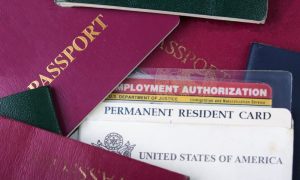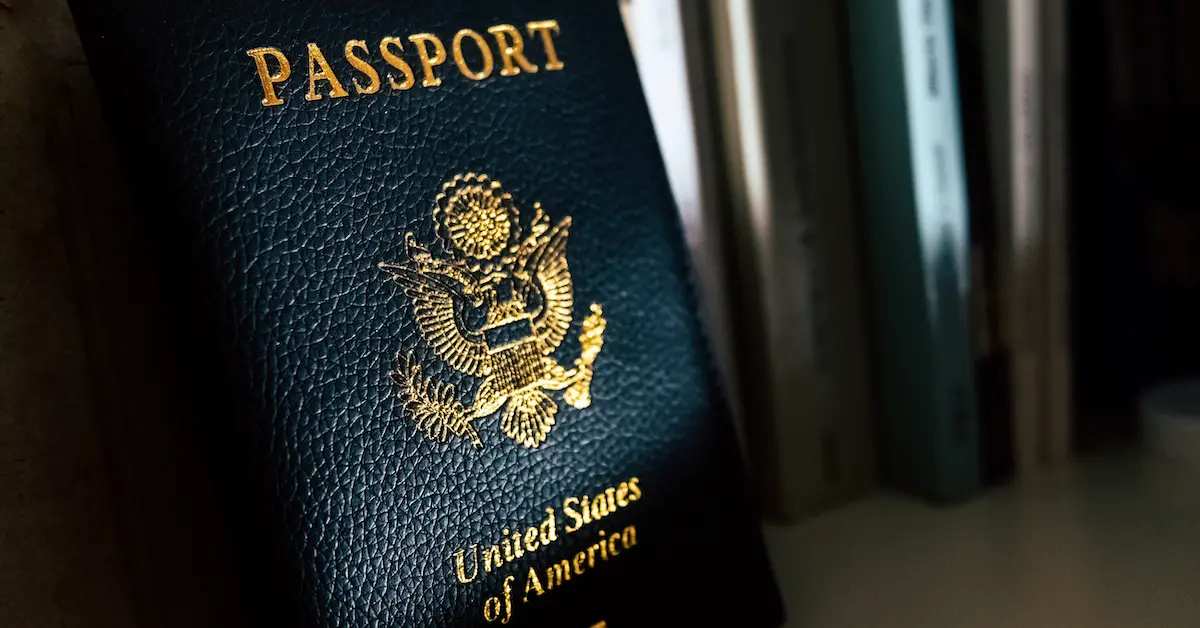Key Takeaways:
-
- FTA Relief: One-time IRS waiver for compliant taxpayers.
-
- Eligibility: Clean compliance history for three years; applies to one tax period.
-
- Application: Check eligibility, gather documents, and contact the IRS if needed.
-
- Avoid Mistakes: Confirm eligibility, complete documentation, and consider professional advice.
-
- Reasonable Cause: Argue based on illness or disasters; success removes penalties and interest.
Have you ever felt like the IRS was this colossal giant, looming over your finances with a fine-tooth comb and an unforgiving eye for penalties? Taxpayers often find themselves in hot water, not by intention but by simple human error or unforeseen circumstances. But here’s something that might change how you view the tax behemoth: IRS first time penalty abatement.
It’s more about recognizing that even well-intentioned folks can slip up, not seeking ways to shirk their duties. Far from it. Think of it as the IRS extending a hand to those who stumbled on their tax journey, offering them a chance to dust off without the extra weight of penalties slowing them down.
This blog will tell you everything you need to know about the IRS first-time penalty abatement. You’ll learn what you need to do to take advantage of this and hopefully stop you from being too anxious. For more detailed guidance and support, consider exploring our tax consulting services.
IRS First Time Penalty Abatement: What You Need To Know

Ah, IRS penalties. Just hearing about them can make your wallet feel lighter, right? Let’s break it down simply.
The First Time Penalty Abatement (FTA), as the name suggests, is like a get-out-of-jail-free card from Monopoly but for taxes. This nifty little waiver covers failures to file, pay on time, and deposit certain types of taxes by their due date.
And guess what? If you’re eligible for FTA, the IRS also wipes away any interest related to those penalties since December 31st, 2000. Talk about a sigh of relief.
The concept of penalty abatement
Now onto something that sounds a bit more hopeful: penalty abatement. The idea here isn’t too complicated – if life threw you some curveballs or you just messed up because let’s face it we’re all human; the IRS might just give you a pass on those hefty penalties attached to filing or paying late.
These charges aren’t just small potatoes either; they can quickly balloon your tax debt into an unmanageable beast.
Luckily for us mere mortals grappling with tax returns and deadlines – there’s hope in the form of administrative waivers such as time abate. It means that under specific conditions outlined by our friends at the Internal Revenue Service (and trust me they do have guidelines), some taxpayers could wave goodbye to these dreaded fines without needing an elaborate song-and-dance routine explaining why things went south.
Criteria for Qualifying for First-Time Penalty Abatement
History of good tax compliance
Getting hit with a penalty from the IRS can feel like getting caught in the rain without an umbrella, right? But here’s a silver lining – if it’s your first time, you might just get a pass. The key is a clean track record.
The IRS looks back three years. If during that time, you’ve been on top of your game – filing all returns on time and paying up by the deadlines – you’re already halfway there to qualify for what’s known as First-Time Penalty Abatement (FTA). Think of it as the IRS giving you a high five for being consistent.
Additional criteria for first-time abate
However, the plot thickens beyond just a simple commendation. It’s not just about having no penalties in the last three years; there are other pieces to this puzzle too.
-
- Pick Your Year Wisely: FTA plays favorites with tax periods ending after December 31st, 2000. And here’s something crucial: it only applies to one tax year or period. Got penalties across multiple years? The earliest one gets priority.
-
- $100 Matters: Small fines don’t count against you. If any penalty was less than $100 over those past three years? No worries; they let that slide under their radar when considering FTA eligibility.
-
- Your Reason Counts: If reasons beyond “my dog ate my paperwork” led to your late filings or payments (think natural disasters), mentioning them could work in your favor even if FTA isn’t an option – but we’re focusing on how smooth sailing can help today.
To sum up: keep things tidy and timely with Uncle Sam and he might just give you a break when life throws curveballs at your finances—especially if it’s uncharacteristically out of step with your usual punctuality playbook. And remember, reaching out directly, whether through phone calls or online forms is how real change starts rolling —so don’t hesitate.
How To Apply for an IRS Penalty Abatement
So, you’ve got an IRS penalty staring you in the face. It feels like a mountain just landed on your doorstep, right? But here’s some good news: climbing this mountain might be easier than you think.
Let’s break down how to apply for IRS penalty abatement. Trust me; it’s less of a headache than trying to decipher your phone bill.
Step 1: Check Your Eligibility
First things first. Before diving into paperwork or picking up the phone, make sure you’re actually eligible for penalty relief. If it’s your first time getting hit with a tax penalty and you’ve been pretty good about filing and paying taxes before, there’s something called first time abate (FTA).
Think of it as the IRS giving you a “get out of jail free” card because everyone deserves a second chance.
Step 2: Gather Your Documents
Gather all those tax documents that are probably spread across three different shoeboxes in your closet. You’ll need these to prove that yes, indeed, Uncle Sam received his due those other times.
Tips & Tricks:
-
- You may not even need any supporting docs if Lady Luck smiles upon you during the call.
-
- If sending Form 843 across the ether(net), attaching evidence strengthens your case faster than spinach did Popeye.
What to do if you’re denied
The game isn’t over yet. If at first, they say no: You can ask nicely again citing what’s known as “Penalty Abatement for Reasonable Cause.” Persistence and politeness might just turn things around for you.
So don’t give up hope—there’s always a chance to make your case stronger and possibly change the outcome in your favor.
Avoiding Common Mistakes When Seeking Penalty Abatement
Let’s face it, dealing with the IRS can feel like walking through a minefield blindfolded. But when it comes to penalty abatement, some missteps are more common than others. And trust me, you want to sidestep these pitfalls.
Not Checking Eligibility First
Jumping headfirst without checking if you qualify for penalty relief? That’s like trying to bake a cake without making sure you have eggs and flour first. The IRS has clear criteria for who qualifies for first-time abatement or reasonable cause relief.
Before you even start writing, double-check that your circumstances align with the requirements.
Ignoring the Power of Documentation
If there’s one thing the IRS loves more than taxes, it’s paperwork. Not backing up your request with solid documentation is akin to showing up at a marathon wearing flip-flops – not going to end well. Whether it’s hospital bills that prove illness or records of natural disasters affecting your business – have those documents ready.
Flying Solo When You Need Backup
Sometimes we think we’re Superman but forget even he had his Justice League team on speed dial. Thinking about tackling penalty abatement solo? Hold that thought.
Navigating tax laws can be as tricky as disarming a bomb while juggling flaming swords.Tax professionals exist for this very reason, and they’ve got the experience (and asbestos gloves) needed for such tasks.
-
- Mistake #1: Assuming all penalties are eligible for abatement — spoiler: they’re not.
-
- Mistake #2: Forgetting to File – Waiting too long to apply because procrastination might just be humanity’s favorite hobby next after Netflix binge-watching sessions.
-
- Mistake #3: Giving incomplete information in your application; leaving blanks is only cool in Mad Libs, not so much here.
In summary (but never concluding), seeking penalty abatement isn’t something out of rocket science fiction nor does it require Herculean efforts—just attention to detail and maybe a little help from pros doesn’t hurt either. Dodge these mistakes and you’ll find navigating through the process smoother than expected.
Reasonable Cause for IRS Penalty Abatement
Ouch. But wait, there’s a glimmer of hope called “reasonable cause” that might just be your ticket out of this sticky situation.
Examples of reasonable cause
You’re probably wondering, what exactly counts as “reasonable cause” when it comes to getting some mercy from the IRS. Well, let’s break it down.
-
- Natural disasters: If Mother Nature decided to throw a tantrum right when your taxes were due, that could be considered a reasonable cause. Think hurricanes or earthquakes messing up more than just your backyard barbecue plans.
-
- Serious illness: Health issues aren’t just tough on you; they can also wreak havoc on meeting tax deadlines. Whether it was you or someone in your immediate family facing health challenges, the IRS might cut you some slack here.
-
- Inability to obtain records: Ever had that moment where crucial documents seemed to have grown legs and walked away? Yep, if losing important paperwork wasn’t stressful enough by itself – try explaining that one.
-
- Mistakes made despite best efforts: To successfully present a reasonable cause argument for late filing and payment, you must demonstrate that you exercised ordinary business care and prudence but couldn’t comply. You must also demonstrate that your noncompliance was not due to willful neglect.
Most people haven’t traditionally been successful with reasonable cause arguments before the IRS, especially in court. In reality, most penalty abatement determinations never get to court. Most are administrative determinations made by the IRS.
The key is showing the IRS that whatever happened was beyond your control and not because of negligence or ignoring rules intentionally. So dust off those records (if they didn’t run away), and gather any proof you have like medical bills or news reports about natural disasters in your area. These bits could help make all the difference between keeping cash versus kissing goodbye to much-needed dough.
Understanding the Impact of Interest on Tax Penalties
Ever get that sinking feeling when you realize you owe the IRS not just for taxes, but also penalties and interest? Yeah, it’s no picnic. But let’s break down this party crasher called interest on tax penalties and see if there’s a way to turn down its volume.
Interest Adds Up Fast
The moment a penalty lands in your lap, it starts gathering interest like lint in a pocket. This isn’t just any old interest; we’re talking about daily compounding interest. That means today’s interest will earn more interest tomorrow. It spirals faster than rumors at a family reunion.
If those numbers start making your head spin, here’s some good news. If you qualify for penalty abatement, the IRS kindly shows some mercy by removing not only the penalty but also the related nuisance—interest.
A Little Less Conversation, A Little More Action.
To cut through this tangled web of accruing dollars, first thing’s first: understand how these extra charges work. When penalties are assessed against your account—for anything from filing late to underpaying what Uncle Sam expected—the meter starts running on both penalties and their best friend: compounded daily interests.
-
- Penalty Hits The day after your due date has come and gone without payment or proper filing,
-
- Daily Compounding Interest: Starts piling up right then and there,
-
- Federal Rate Adjustments: Just when you think things can’t get more complicated… they do. These rates adjust quarterly based on Federal rates (yep).
This is why catching up with payments ASAP is crucial because as long as that balance remains unpaid or partially paid —the clock keeps ticking louder each day.
Don’t Panic When You Get An IRS Notice: There’s Help Available
So, we’ve trekked through the thicket of tax troubles together and emerged with a clear view on IRS first-time penalty abatement. It’s not just a lifeline; it’s your right as a taxpayer to catch a break when life throws you off course.
We’re not talking about skirting around obstacles or exploiting gaps in the system here. No, it’s much more dignified than that.
Navigating the intricate labyrinth of tax errors involves not just admitting slip-ups but also embracing the belief that each individual is entitled to a shot at redemption, highlighting the nuanced dance between accountability and compassion in fiscal matters.
For more information or to work with highly experienced tax professionals, contact Silver Tax Group today.








